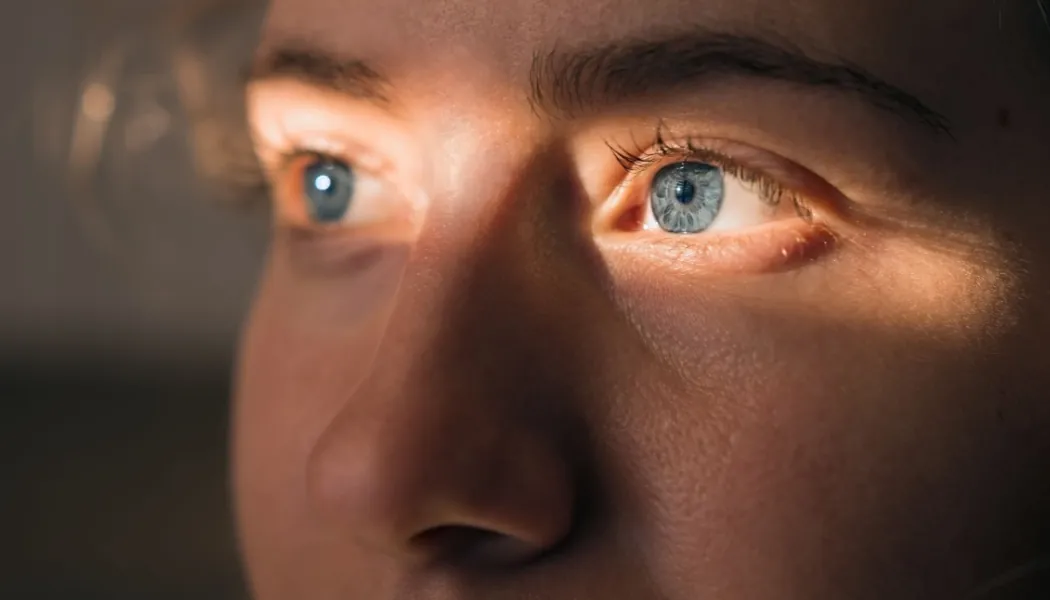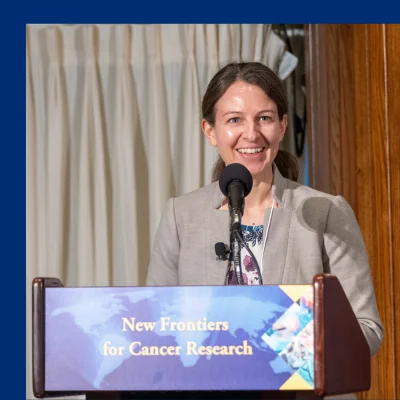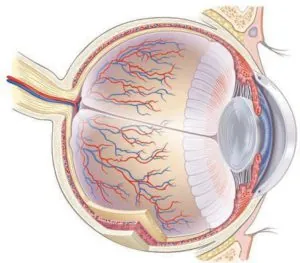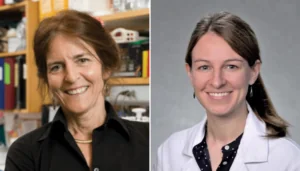NFCR Shines a Spotlight to Cure the Rare Vision Loss Associated with Some Cancers

Cancer-Associated Retinopathy (CAR) may occur when lung, breast, or other cancers form antibodies that attack and destroy the retina’s vision cells. No therapy is available to replace the cells; patients will have vision loss or even blindness.
At our 2022 Global Summit and Award Ceremonies for Cancer Research & Entrepreneurship, NFCR-supported researcher, Dr. Katherine Uyhazi explained: “Cancer patients endure treatments to fight their cancer, and then some patients may suffer vision loss. While relatively rare, CAR can be devastating. If we can find something that can regenerate the vision cells, it will have broad implications for cancer patients.”
Decreasing vision can be the first symptom of cancer and is a red flag for primary care physicians who observe this problem in their patients. Cancer-associated retinopathy (CAR) is a rare condition that occurs when anti-tumor antibodies that circulate in the body reach the eye, where they attack healthy retinal cells. The retina cannot regenerate after injury, so irreversible blindness may occur.
The Challenge & Approach
Since the human retina cannot regrow itself after injury, the immune attack on the retina results in the permanent death of the cells in the back of the eye that respond to light and are ultimately responsible for vision. Replacing these cells by transplanting healthy rod and cone cells in the retina represents a promising treatment for patients with CAR. However, the ideal cell source, purification method, and delivery method for retinal cells to transplant still need to be better understood. Previous attempts have resulted in minimal integration of cells.
Preliminary work done by Drs. Uyhazi and Aleman have identified several new populations of developing photoreceptor cells in the mouse model, a positive step forward for developing new treatments to reverse vision loss. Their current supported work focuses on transplanting these healthy photoreceptor cells into a mouse model of retinal disease that mimics the cell death in patients with CAR to better understand the ideal cell type and source to restore vision after photoreceptor cell death. The scientists will simultaneously deliver gene therapy with the cell replacement therapy to restore necessary retinal components.

“This critical funding is helping us expand our gene and cell replacement therapy research that holds great promise for treating loss of vision in cancer patients”
-Dr. Katherine Uyhazi
NFCR would like to extend special thanks to our partners in advancing Dr. Uyhazi and Dr. Aleman’s research, The Ware Bluegrass Foundation based in Naples, Florida. The foundation was named for John and Alice Ware, two compassionate philanthropists who lived their lives with very limiting sight or blind, while supporting human welfare causes important to them.
Note: This information originally appeared in NFCR’s Spring 2023 Newsletter for Donors.
You May Also Enjoy:
Powerful Duo Combats Eye Cancer
A world without cancer is possible. Help us turn lab breakthroughs into life-saving realities.

5.7 Million+
Donors who have fueled NFCR’s mission

$420 Million+
Invested in high-impact research & programs

36+ Labs & Hundreds of
Nobel Laureates & Key Scientists received NFCR funding, driving breakthrough research















